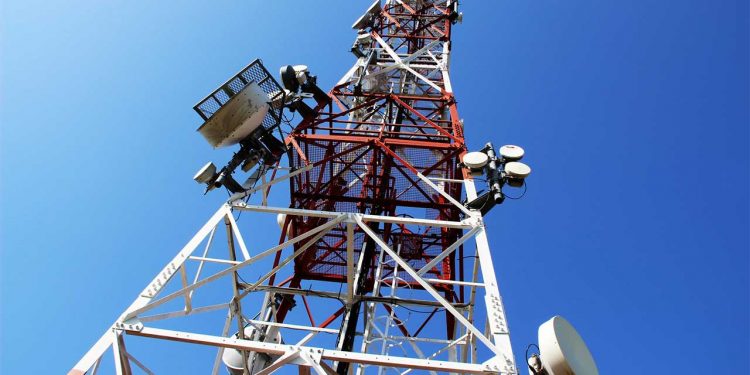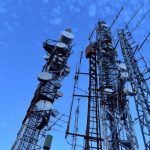In a concerted effort to bolster Nigeria’s economic framework, IHS Towers, the Association of Licensed Telecom Operators of Nigeria (ALTON), and the Nigerian Communications Commission (NCC) have proposed comprehensive strategies aimed at protecting the country’s telecommunications infrastructure from rising incidents of cyber threats, theft, and vandalism. These recommendations were articulated during a critical side event at the 30th Nigerian Economic Summit held in Abuja, titled “Protecting Critical National Infrastructure: Securing Nigeria’s Telecommunications Sector for Sustainable Growth.”
The session drew attention to the vital role of securing Nigeria’s telecommunications infrastructure, addressing various forms of disruption while also highlighting legal and regulatory issues that need to be navigated. Mr. Dapo Otunla, Senior Vice President and Chief Corporate Services Officer at IHS Nigeria, opened the discussion by underscoring the importance of telecommunications assets, which have been recognized as Critical National Infrastructure (CNI). He asserted that safeguarding these assets is fundamental not only for the economic aspirations of Nigeria but also for attracting investments that are crucial for growth.
Otunla advocated for a collaborative approach among stakeholders to develop a robust Critical National Information Infrastructure Protection Plan (CNIIPP). This plan aims to create a unified front against the threats facing telecommunications infrastructure. He noted, “A collaborative approach to safeguarding these critical assets from threats, along with the joint development of a robust protection plan, will significantly contribute to securing the future of telecommunications infrastructure in Nigeria.”
He elaborated on the need to enhance the ecosystem that supports national security and digital advancement, stating that a focus on these areas will help build a more secure and sustainable future for the nation. In terms of specific initiatives, IHS Towers has partnered with the Federal Ministry of Communications, Innovation, and Digital Economy to equip three million Nigerians with essential digital skills over the next three years. This initiative also includes the establishment of innovation hubs within existing institutions, which are designed to foster technological growth and development.
Otunla further remarked, “We are committed to building a vibrant digital ecosystem through initiatives such as the 3MTT Learning Community.” He emphasized that the telecommunications infrastructure plays a pivotal role in powering Nigeria’s digital economy, enabling increased access to essential services in healthcare, education, financial inclusion, and other critical sectors.
In a bid to raise public awareness about the significance of critical national information infrastructure assets, Otunla stressed the necessity of disseminating information widely across Nigeria. He highlighted the importance of the recently approved “Designation and Protection of Critical National Information Infrastructure Order, 2024” by the federal government. According to Otunla, this executive order can effectively address pressing issues within the telecommunications sector, but its success hinges on the thorough implementation by relevant stakeholders. He asserted, “It’s a major first step, and I think it’s incumbent upon all of us—not just the operators, not just the regulators, and not just the government—every Nigerian citizen has a role to play in this.”
During the discussion, ALTON Chairman Gbenga Adebayo praised the federal government for signing the executive order that officially designates communication infrastructure as CNI. He noted that this order represents a significant advancement for the telecommunications sector. However, Adebayo cautioned that without a comprehensive protection plan, the objectives outlined in the executive order could be undermined. He remarked, “Our collective national web is anchored on secure and resilient telecommunications infrastructure. Hence, the need for an efficient CNIPP cannot be overstated.”
Adebayo put forth recommendations for developing a secure, centralized, and up-to-date database that catalogues all physical telecom infrastructure operated by telecom companies and service providers. This database would be managed by the NCC and ONSA, with restricted access granted only to operators who would be able to update their own infrastructure details. He stressed the importance of creating protocols for routine surveillance of major telecom infrastructure nationwide, which should be carried out by the Nigeria Security and Civil Defence Corps, the police, and national commands.
He further suggested that the CNIPP should include standard procedures for addressing threats to telecom infrastructure throughout the country. This would also necessitate the establishment of brief timelines for intervention and resolution by security agencies. Adebayo emphasized, “Inclusion of clear timelines and processes for commencing enforcement against erring individuals or entities, including sub-nationals, in line with relevant provisions of the law,” is essential for ensuring accountability and swift action in the face of threats.
He pointed out that two of the most pressing risks to telecom infrastructure in Nigeria that need to be addressed include negligent interference by road construction companies and bureaucratic bottlenecks with local authorities.
From a regulatory perspective, Isah Latinwo, Deputy Director of Compliance Monitoring & Enforcement at the NCC, described the executive order signed by the current administration as a key legal development for telecom stakeholders. He expressed optimism about the Commission’s role, stating that it is dedicated to supporting the protection of telecom infrastructure. Latinwo revealed that the NCC management has established a committee to evaluate the protection plan and assist telecom operators and other stakeholders. He committed to releasing an updated plan in this regard before the end of the year, which will provide clarity and direction for all involved.
In summary, the collaborative efforts between IHS Towers, ALTON, and the NCC signify a crucial step toward protecting Nigeria’s telecommunications infrastructure, which is foundational for the nation’s economic stability and growth. By implementing these strategies and fostering collaboration among various stakeholders, Nigeria can enhance its telecommunications resilience and safeguard the critical services that underpin its digital economy. This initiative not only aims to protect existing infrastructure but also sets the stage for future growth and innovation in the telecommunications sector across Africa.










